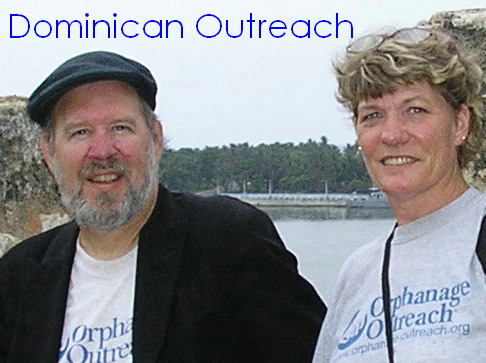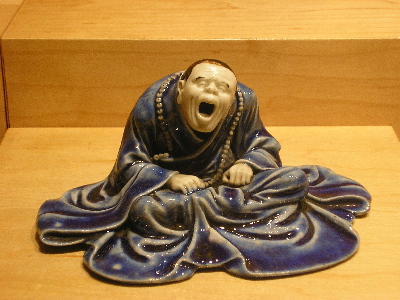
Christianity in China

Report�Christmas 2004 Christianity in China I have recently returned from China where my wife and I were guests of Emmanuel Protestant Congregations. We visited many chuches, schools, and educational institutions. I was able to speak to youth groups, churches, and clergy associations. I even led several people to Christ through altar calls and witnessing on the streets. Al though there is a great deal of religious freedom is places like Hong Kong, here are some of the things we learned.
[There are] about 70 million Protestants and about 12 million Catholics. During the Cultural Revolution (1966-1976) every single church building (and mosque and temple as well) was closed in China. The formal, permitted structures of Chinese Protestantism and Catholicism had also been dissolved by Mao's Red Guards. Christians become used to gathering in totally clandestine situations, in homes, fields, forests. Because the government was so overtly hostile to religion, Christians took the view that the best response was open and energetic evangelism wherever and whenever they could. Even when China began to open up in 1979 and the "official" churches were permitted to function once more, the "house church" networks had established such a powerful presence all over China that it made sense to continue to operate completely outside of the domain of any Chinese officialdom.
Several of the Chinese students and scholars studying in the U.S. and other foreign countries become Christian. Many of these also returned to China and meet up with colleagues of similar professional attainment who were holding private Christian meetings. Those attending these meetings then began to invite others. Word spread that Christianity "worked," that is, that people who were Christian were genuinely concerned for each other's welfare and that prayers often produced remarkable physical healings from difficult illnesses. But another factor has been a very open-minded approach by many Chinese intellectuals into such phenomena as the remarkable historical primacy of Western civilization around the world. How could this happen? What were the core principles of Western civilization that enabled it, time and again, to correct itself rather than plunge into cyclical and eventually permanent decline? Many concluded that it was Christian ethics and the dynamism of a faith based on a profound hope in the future and a belief that history was not cyclical, as Buddhism and even Confucianism proclaimed, but linear, and with a specific end goal.
Finally, Christians in the fine and performing arts have shown that there is a way out from the often-nihilistic cycle of modernism and postmodernism. This can be very attractive to artists who would prefer a hope-filled universe in which to develop their creative skills.
In some parts of China, notably Henan province, where there are large communities of Christians, and in Anhui, the persecutions have been repeated and severe. There have been reports in the past few weeks of at least one Christian woman beaten to death in prison, and several more seriously injured as a result of beatings. One Christian whom I met in 1998 when I attended a gathering of house-church leaders was sentenced to two years in a labor camp for having written in his private prayer journal, among other things, that he was praying for a Christian constitution for China. The journal was seized during a fishing-trip search of his home. When a Chinese friend phoned the interrogator up to ask on what conceivable grounds this non-political and irenic citizen was being punished, the interrogator replied, "Mr. Zhang doesn't have a criminal problem, he has a mind problem. He is too superstitious." Translation: Zhang is a man of prayer.
There are no "denominations" as such in China, only different kinds of Protestant house-church networks and some basically underground Catholic networks. In general, the authorities don't pay any attention to theology (i.e., whether a group, for example, is Calvinist � "once saved, always saved") but to how active a group is in spreading the Gospel and organizing meetings. The most active groups are frequently harassed and their leaders arrested and beaten.
There are plenty of pro-democracy secular activists in China. What has happened, however, is that some intellectuals who were dissident within China and then came to the West and became Christian, have integrated their faith with proposals for a new democratic governance in China. It is nevertheless true that all of China's Christians would strongly support democratic change in China.
If Christians began to fill positions in China's foreign ministry, strategic think tanks, and even high places within the government as a whole, China would become far less opportunistic about supporting any Middle Eastern group that happened to be critical of, or hostile to, the U.S. In addition, if China ever became open enough to be willing to permit Chinese missionaries to travel overseas, it would probably be supportive of efforts of Chinese missionaries to evangelize the Islamic world, especially the Arab Middle East. This, of course, would render China far less popular in the Muslim world as a whole and thereby far more likely to try to be "even-handed" in the Israeli-Palestinian dispute.
One man who epitomized Chinese Christianity until his death in 1991 was Wang Mingdao, a man I met in Bejing in 1989, an evangelical Protestant who had started a church in Peking (as it was then called) in the 1930's. When the Japanese occupied Peking and North China, Wang refused to join one of their puppet Christian organizations, at some considerable personal risk. Later, after the Communists came to power in 1949, Wang similarly refused to be used in their own efforts to manipulate Protestant churches for political ends. Starting in 1956, he spent a total of 22 years in labor camp, steadfastly refusing to kowtow to the regime. Yet when he was released from camp about a decade before his death, he was completely lacking in rancor of any kind.
Another, contemporary figure who has been quite public about his faith is the prominent conductor Timothy Su. For three years Su has conducted first-class orchestras and choirs in public performances in Beijing of Handel's Messiah in Chinese. He was permitted to conduct one performance in Guangzhou, but local authorities in Shanghai and other cities canceled the performances. Su is highly respected as a musician, and he is publicly known to be a Christian, a fact that has caused him problems when it comes to more performances of Christian worship music.
Chinese Christians hope that by the year 2008, when China hosts the summer Olympic Games, China's government will have radically improved conditions of religious life in China. In fact, many Chinese Protestant Christians hope that there will be an opportunity openly to celebrate the bicentennial in 2007 of the arrival of the first Protestant missionary to China, Robert Morrison (who settled in Canton). I was struck again and again by how widespread the Christian presence is in China: taxi drivers in Beijing, businessmen in Wenzhou, academics in Shanghai. I was also powerfully aware of how many serious problems there are in the country that are festering away beneath the surface..
Christianity, though assumed by many in the West to be outmoded and irrelevant to modern life, is regarded by many Chinese as the absolute key to a successful, peaceful, powerful modern China in the future.
In the modern period, the country that has set a precedent for China's possible future development has been South Korea. Though Christians are not a majority � maybe they are about one third � South Korea is effectively "Christianized" in the sense that Christians fill very important positions throughout society and government. It was in many ways the self-organizing experience of Christian churches in Korea that enabled that nation to make a successful transition from dictatorship to democracy.
Dale's book is available online along with some other items to help promote the book. .
All of Dale's books are available at www.lulu.com/barhanna Books Relating to the Language of Jesus
Mailing Address: Snail Mail
Mailing address
(via the kindness of our friend):
Dale and Marta Johnson%
Leticia Minaya
Roman de Pina �35
Mao, Velverde, Republica Dominicana


December 20, 2004
Field report from Good Samaritan Orphanage, Dominican Republic

Dale has just received news that his book, The Monks of Mt. Izla will be used for a course on monasticism at Cambridge University in England. Dr. Erica Hunter, professor of Aramaic at Cambridge, wrote to inform Dale of her choices for course material.
Leadership Conference
A leadership conference for Orphanage Outreach will be held on the north coast of the Dominican Republic at the orphanage of Monti Cristi. A new husband and wife team has joined John and Rochelle at the Orphanage. Bonnie and Chris have worked in many ministries throughout the United States. One of their grown adult children is serving in Cambodia and they just received news of a new grandchild.
Scheduled next week for December 28-30, we will make final plans for the volunteers soon to be arriving. Coordination of activities and development of plan that can fit a variety of situations is on the agenda.
Dale and Marta Johnson,
Send contributions to Orphanage Outreach,
atten. Dale and Marta
6111 Robert E. Lee Street,
Glendale, AZ 85308 or pay by major credit card through Pay Pal. Click below




